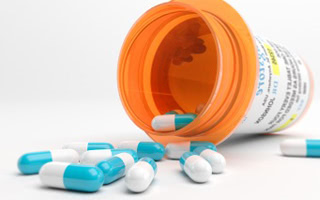Tricyclic Antidepressants (TCA)
Tricyclic antidepressants (TCAs) are a very large class of antidepressant drugs. A small sampling includes: amitriptyline (Elavil) amitriptylinoxide (Ambivalon) amoxapine (Asendin) butriptyline (Evadyne) clomipramine (Anafranil) desipramine (Norpramin) doxepin (Sinequan) imipramine (Tofranil) nortriptyline (Pamelor, Aventyl, Norpress) pipofezine (Azafen/Azaphen) protriptyline (Vivactil) trimipramine (Surmontil)
Abuse and Detection
Tricyclic antidepressants have long been considered of low abuse potential, since they dont produce the high that many abusers seek. In fact, US government classification of psychiatric medications lists TCAs as "non-abusable" . But recently, more and more incidents of combining TCAs with other drugs have been observed. Mixing TCAs and opiates, for example, produces a sense of euphoria and pleasant hallucinations. TCAs are also mixed with alcohol for enhanced effects. Of particular concern is the high risk of death from overdose. Deaths from TCA overdose are higher than any other drug except analgesics.
Common street names:
blue angels, blue birds, TCA
Symptoms of Abuse:
euphoria, hallucinations, blurred vision, dry mouth, drowsiness
Medical Dangers:
low blood pressure, increased heart rate, nausea, headache, seizures
Testing Medium:
Urine
Window of Detection
urine 3-6 days

